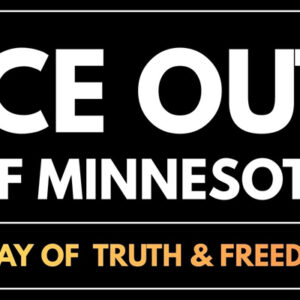
So You've Decided to Launch an Imprint...
Emily Gould and Ruth Curry discuss Emily Books' New Print Adventure
This past March beloved independent publisher Coffee House announced they’d be launching their first imprint in collaboration with Emily Books. Founded in 2011 by Emily Gould and Ruth Curry, Emily Books is a monthly by-subscription ebook/book club/bookstore that seeks “to carve out a space in the retail environment for independent ebookselling by proving to publishers that it can and should be done.” We lured Gould and Curry into a Google doc to get their thoughts on the impending launch of their first print title, Problems, by Jade Sharma.
Literary Hub: What’s the origin story behind this imprint? Who approached who? Were there drinks?
Emily Gould: Ruth actually interned at Coffee House when she was in college (at Carleton), which is part of the reason why Emily Carter’s Glory Goes and Gets Some was one of our earliest, and still most beloved, Emily Books picks. We started talking to Chris [Fischbach] and Caroline [Casey] about the idea of an imprint about a year and a half ago. Yes, there were drinks. I remember Palomas. Sigh. (I haven’t been able to really drink for a little over a year now, thanks, baby.)
Ruth Curry: Yes, Palomas! I was so late to that drinks date because of MTA bullshit, I remember.
I have to say though, the idea to move into print was 100 percent Emily’s—she had to convince me that it was the right thing to do (per usual she is correct). We considered partnering with a few other publishers, but nothing seemed quite right. Coincidentally Chris and I happened to be corresponding about Eimear McBride around this time (one of those Emily Books picks that got away), and I thought… hey wait, this idea could really work! Fortunately Chris and Caroline agreed!
LH: Was there a moment when you thought maybe not?
EG: Definitely. Many. It’s a big, ongoing, years-long commitment. We met with an author whose book we’d like to publish recently and one of the things we emphasized to her is that we’re not going anywhere—as a way to distinguish ourselves from big houses, where young cool editors are often moving up and out. But when Ruth and I decided to do this, we knew we had to be in it for the long haul. Making books is a long, collaborative process and when someone on the team jumps ship halfway through, it shows in the final product. If we were going to publish books, we wanted to do it well and in a way that did right by authors.
RC: Um, all the time? Our official division of responsibilities is that I am the worrier and Emily is the cheerleader. (I’m only sort of joking about this.) But yes, it is a huge commitment and Emily and I have other commitments—to our families, our writing, to making money to pay our bills. It’s hard not to feel overwhelmed sometimes. I think it speaks to both of our dedication and passion for this work that we continue to do it, always try to do it better, and are taking on more of it.
LH: Do you remember the precise moment when you decided, as partners, to do this?
EG: LOL. Nope! I mean, we had wanted to be publishers [RC: LOL, did we?] since we began as a store, but we weren’t sure how to do it without taking on a lot of debt and risk. It’s been an ongoing conversation for the past four years.
RC: Like I mentioned above, I had a real a-ha moment with Chris. We as partners needed to find the perfect “third” to make this happen, because realistically, we weren’t going to be able to manage warehousing and distribution and PPB and selling into big accounts by ourselves.
LH: How’s the submission process going?
EG: I think it’ll improve a lot when we have galleys of Jade Sharma’s Problems in January—that way, we can say “See, this is what we’re doing!” and hopefully we’ll get a lot more submissions that are right for us. What we do is so specific, and we also are finding that we need to luck out and find authors at the perfect point in their careers where it makes sense for them to be published by a place like Coffee House, which can offer a lot of prestige and care but not giant buckets of cash.
LH: What’s the balance right now between online bookstore and imprint?
EG: As we work to relaunch the website it’s skewing more website, but our hope is that once that’s up and running it’ll even out!
LH: Are you going to have a unified design aesthetic for the imprint?
EG: No, we considered this approach—a la NYRB or Melville House, right? But the books are all so different they deserve to have their own unique covers.
LH: How painstaking was the decision around your inaugural title? Was there a strong shortlist that kept you up at night or was it obvious to you both which book to lead with?
RC: It was fairly obvious. I already knew the writer and the novel is so much “our thing” that it was pretty much a no-brainer. And everyone who’s read it so far—early reviewers, the cover designer, our managing editor—has a) loved it and b) commented on (unprompted) the qualities that drew us to the book.



















